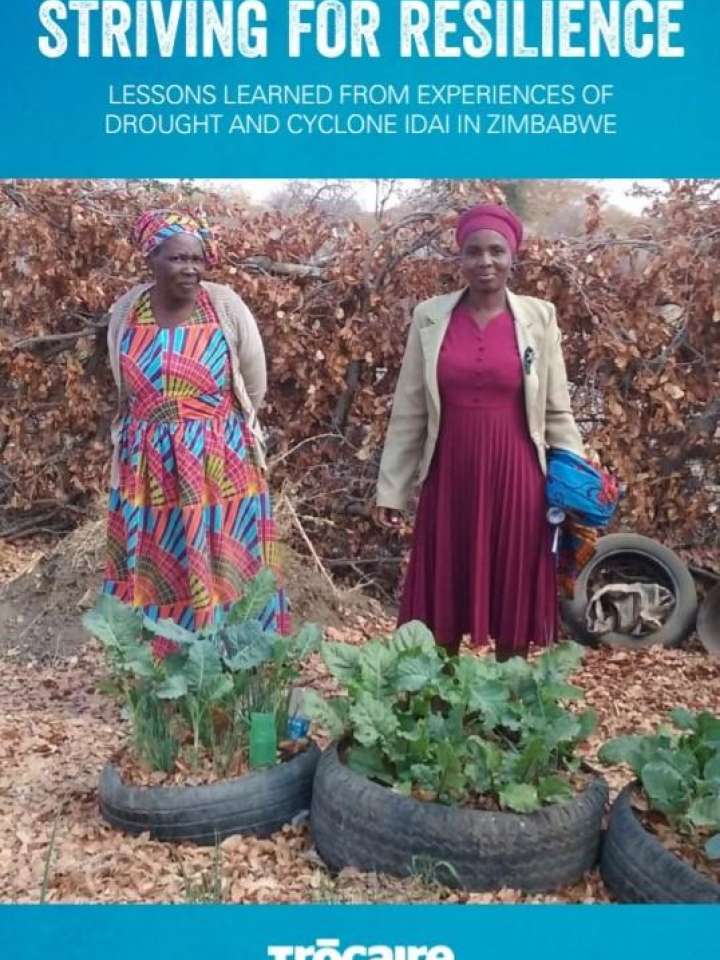Striving for resilience: Lessons learned from experiences of drought and Cyclone Idai in Zimbabwe
As a result of the El Niño induced drought (beginning in November 2018) and the devastation of Cyclone Idai (March 2019) which affected communities across Zimbabwe, Trócaire undertook a study in August 2019 to gain greater insight on the impact their resilience work in select communities of Matobo and Bikita Districts. The study does not present the full story of what occurred throughout Zimbabwe, but it does highlight (page 23) some lessons learned along with providing recommendations to improve resilience programming in the future:
- Households in Matobo and Bikita Districts, in general, have higher capacity to prepare for drought than cyclone/flood due to their familiarity with the hazard.
- Most households taking part in the use of small grains and agroecological practices are food secure, even throughout drought period.
- There is a paradigm shift occurring throughout Matobo and Bikita Districts that maize is not needed as the only household crop. Additionally, the enabling policy framework which promotes agroecology and small grains guides the government extension staff is a major component of this.
- There is a better understanding and good uptake of water conservation techniques.
- There is a general understanding of the importance of early land preparation (pot holing, mulching).
- Some agro-ecological practices, such as pot holing, contour trenches and runoff pits helped build resilience to both cyclone and drought.
- There is an increased awareness among the farmers in both Matobo and Bikita on the need to embrace agroecological practices that promote moisture retention.
